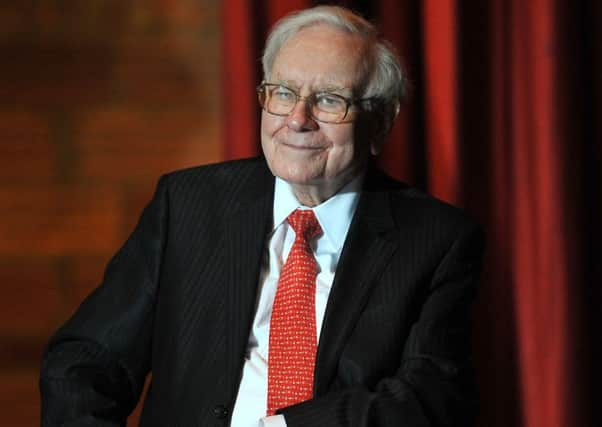Alan Steel: Wary investors throw caution to the wind


Most experts were saying then that stock markets were too risky. Mind you, they said the same thing in 2009 and were wrong then too. Nothing changes, eh?
At the time I reminded folks about Joe Granville, the legendary stock market guru. For a while he was pretty accurate, but he then got it so wrong that by the time he died in 2013 at the age of 90 he was impoverished and forgotten. But he did leave behind one great piece of advice that he should have taken himself: “When something’s obvious, it’s obviously wrong.”
Advertisement
Hide AdAdvertisement
Hide AdIn that summer I was telling people to be wary of Absolute Return funds. Both here and in the US they were “obvious” investments attracting billions from pension fund trustees and private investors. What was their attraction?
If you did a quick search of the internet you would probably find them described as funds that “should make money regardless of underlying market conditions in their asset class”.
I wrote at the time that “when the investment industry reckons it’s an easy sell to attract investors, it starts forming more such funds so as to make more easy money… for themselves”. Bear in mind that these funds attract the fearful, but have high charges.
Have you ever asked an Absolute Return fund manager how they invest? Try it sometime. Then you’ll understand why Warren Buffett’s number one rule is that you should never invest in something you don’t understand.
Despite their complexity and poor returns, three years ago to the end of May 2016, the UK sector – which includes the mammoth Standard Life Investments Global Absolute Return Strategies (Gars) fund – was surprisingly popular, with 62 funds holding £32 billion.
Now, just three years later, it’s 102 funds and £94bn, with the Gars fund now holding more than £26bn. The Investment Association confirms that in nine of the past 14 months the sector has attracted the biggest net inflows of private investor money. Unfortunately the obsession with Absolute Return is even more pronounced in final salary pension schemes.
When will it become obvious to investors that they’re backing a lame horse? The bulk of the performance numbers over the past three years have been dire, even worse than the previous three years. They’re almost as bad as in the US, where from 1997 onwards many funds with “Absolute” in their title underperformed a simple mix of equities and bonds, known as a 60-40.
Long-term US investor Dr Ed Yardeni was asked if he’d any regrets about his career. He replied that the only one was that he didn’t have a million dollars handed to him 25 years ago to invest entirely in a mix of well-run global businesses with a solid record of growing dividends. Over here you can do that simply by investing in equity income funds, either UK-focused or global. And remember that the longer your time frame, the bigger the impact from reinvested dividends.
Absolute Return funds? Anybody have a ten-foot barge pole handy?
Alan Steel is chairman of Alan Steel Asset Management in Linlithgow